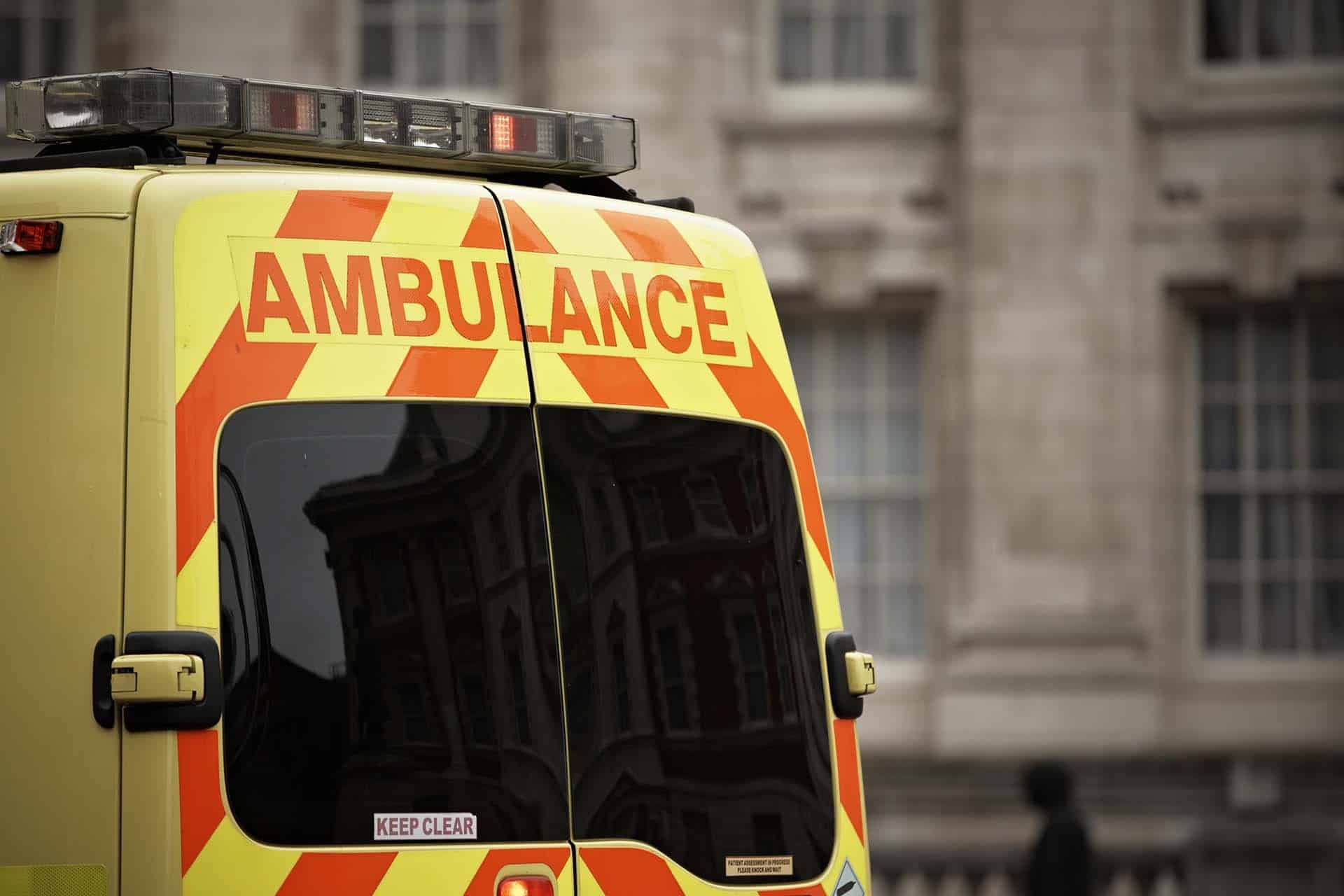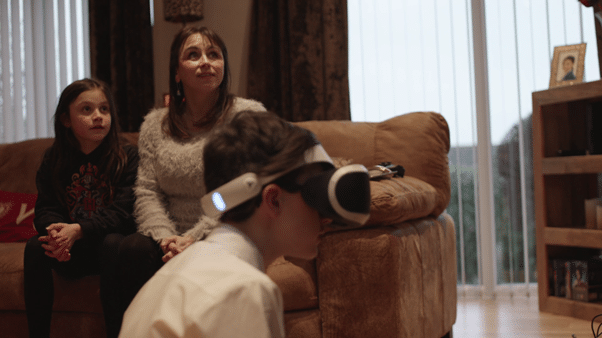
 " alt="">
" alt="">
A&E claims

Reviewed by
Peter Rigby - Director of Medical Negligence
We've got your A&E Negligence Claim covered
- No win No fee
- Not just lawyers - real specialists
- No obligation
- UK's highest-rated medical negligence solicitors
Accident and Emergency (A&E) Negligence Claims
The ability to get access to high-quality medical care in an emergency situation is a necessary component of the UK healthcare system. As such, the Accident and Emergency (A&E) departments of hospitals around the country are meant to serve patients who are experiencing serious or life-threatening injuries or illnesses. More than 1.75 million patients are seen in the A&E department each and every month, making it the busiest, and arguably, the most error-prone division of the country’s healthcare system.
While most experience quality medical care and attention while visiting the A&E department for treatment of a critical injury or illness, others are not so fortunate. Because of the often hectic scene, patients have the potential to endure A&E negligence by way of additional injuries or illnesses due to lack of proper care, misdiagnosis, or undiagnosed issues. Despite the fast pace of A&E departments, you are still entitled to the best medical care available. When that isn’t received, you may have cause for an A&E claim to offset your financial losses and regain peace of mind.
Find out if you
have a claim
Take the 10-second claim test
Free Advice
03300 080 352
claim form
We're the highest-rated No Win No Fee medical negligence solicitors on Trustpilot
Types of A&E negligence claims
We manage a variety of A&E negligence claims each month, with each patient’s experience different from the next. However, there are a number of claims common to A&E which can cause long-lasting damage that is hard to overcome alone. These A&E claim types include:
- Misdiagnosed bone fractures
- Incorrect medication
- Incorrect treatment
- Delayed treatment
- Hospital infections
- Inadequate patient examination
- Inadequate medical investigation
- Misinterpreting exam or test results
- Inadequate postoperative care
In addition to the common claim types that arise due to A&E negligence, you may also face a complete failure to treat when visiting the hospital for an emergency medical situation. Some patients are sent home before being seen by an A&E doctor, or far too early given their symptoms and underlying medical issues. When this happens, you may be eligible for an A&E claim for compensation if further injury or illness was sustained due to being turned away.
Who pays for A&E negligence claims?
Bringing a claim for A&E negligence means you have suffered additional injury or illness due to poor-quality care while visiting the A&E department of a hospital. Fortunately, there is no financial risk to you or your family because we work on a no win, no fee basis. For each claim, compensation ranges greatly depending on several factors, but most likely will include the costs associated with the following outcomes:
- Pain and suffering related to your additional illness or injury
- Loss of earnings, including income you would have otherwise received in the future if it weren’t for your additional injury or illness
- Additional expenses you must pay to receive ongoing care or treatment
- The cost of medical treatment
- Compensation for psychological damage based on the severity of your A&E claims
Over the past five years, medical mistakes have cost the health care system in the UK more than £4.5 billion, with the majority of that astonishing cost paying for compensation to injured patients and their families. A&E negligence has the potential to cost you and your loved ones a great deal. However, we work with you through the claims process to ensure you get the compensation you deserve.
What can I expect when I make a claim?
The thought of starting the claims process for A&E negligence may be overwhelming initially. However, making A&E claims for medical mistakes is something we do each day to help individuals get the compensation and answers they deserve. It is in your best interest to contact us for legal advice regarding your specific experience so we can advise you on the most appropriate next steps for your situation.
Individuals who decide making an A&E negligence claim is the best course of action have a three-year time limit on when a compensation claim can be completed. This means that as soon as you realise negligence has taken place in the form of misdiagnosis, additional illness or injury, an infection from your hospital visit, or lack of treatment, you must speak with an A&E claims expert as soon as you are able. Our highly-qualified solicitors are available to speak with you or a loved one via phone or through a simple contact form online without any financial risk to you.
Our experience of covering A&E claims
We work with one in 10 medical negligence claims made throughout the UK, and have years of experience in providing the legal advice and guidance patients and their families need in an incredibly stressful time. One of the biggest issues surrounding A&E claims brought about by medical negligence is the fact that medical providers are not keen on providing the information you need to understand what truly took place. Instead of clear and open lines of communication, most A&E departments are quick to avoid owning up to mistakes that may have caused additional illness or injury. At Patient Claim Line, we understand your need for getting that crucial information in addition to your due compensation.
Information we need to process your A&E negligence claim
With an A&E claim, it is important for us to understand what happened by listening to your experience. If you’re not sure you have reason for an A&E claim, you can take our simple 30 second claim test online and one of our specialists will reach out to discuss your circumstances. You may also speak with our team over the phone or by submitting a claim form online.
Once we’ve determined that you do have a case that involves negligence, we will gather the right information so that we may further understand the specifics of your experience. We also document the details of what happened, the date of the incident(s), and any steps you have taken independently to reduce your losses, like continuing treatment per the doctor’s orders. From the start, we offer our assistance on a no win no fee basis, meaning there is no financial risk in reaching out for help. Contact us either online or via phone today if you think you have an A&E negligence claim for compensation.
How to make a medical negligence claim against my local trust?
As one of the largest and oldest national institutions for medical care, the National Health Service (NHS) plays a significant role in treating millions of patients each year. NHS trusts offer a variety of services to patients, therefore there are countless areas where NHS negligence can take place. We work with a staggering number of NHS compensation claims on any given day, with the most common areas where things go awry including surgical negligence, prescription errors and medical misdiagnosis.
Individuals trust the NHS to provide medical care for an array of health needs, including routine screenings, treatments for mild to severe long-term conditions, emergency services and prescriptions. Given the breadth of care services offered at NHS trusts, it is not surprising that things can – and do – go wrong.
Patient Claim Line has helped thousands of claimants in the UK bring cases against their local NHS trusts. Find out if your trust is listed in our local claims guides and see if you can make a claim below:
Why Choose Patient Claim Line for your A&E Negligence Claim?
Not just lawyers — medical negligence experts
Patient Claim Line was established in 2014 and consists of a team of medical lawyers specialising in cancer negligence and general medical negligence claims.
At Patient Claim Line we have more than 100 solicitors with a combined experience of over 400 years and they will work on your behalf to achieve the best result possible for you.
It’s not enough to use a solicitor who sometimes covers medical negligence. You need someone who knows this area through and through. That is what the solicitors here at Patient Claim Line do. They deal exclusively in this area of law and are experts in the field.
Frequently asked questions about A&E Negligence Claims
Our expert legal team answer your questions about making a A&E Negligence Claim
Accident and emergency negligence is when you have suffered an injury or harm as a result of negligence by a medical professional. There are a number of instances where you may be entitled to make a claim as a result of negligence, but mainly these fall into two categories: diagnosis error and treatment error. Things such as failing to properly examine a patient or providing incorrect treatment are common examples of negligence in A&E. If you believe this has happened to you, you could be eligible to receive compensation.
If you have been the victim of A&E negligence within the last three years, then Patient Claim Line can provide support throughout the process. In general, there is a 3-year limitation on when a compensation claim can be completed.
If you’ve been made to suffer an illness or injury while being treated in A&E, you could be entitled to make a claim for compensation. In the UK, more than 1.75 million patients are treated every month, making A&E departments one of the most high-pressure environments to work in. As such, the risk-factor can be extremely high and when mistakes happen, patients can be left dealing with the consequences. If you have been affected by an A&E error and are looking to make an accident and emergency claim, Patient Claim Line’s specialist team can help.
The amount of compensation you will receive when you make an A&E claim will vary depending on the circumstances involved. Every case of A&E negligence is different, so the final payout will be based on the severity of the injury you experienced. There are a number of other factors which are taken into account too, including the impact on your health, medical expenses, and any loss of earnings. There are two types of A&E compensation claims you might receive, which are financial losses and expenses accrued, and general compensation for things such as pain and suffering.
Meet our A&E Negligence Team
Case Study
Sarah's Story
"Now we have peace of mind"
My husband, Nick, went back and forth to the doctors for a long time and tried everything the doctor recommended. But his illness got worse, to the point that he was in agony.
In the end we got so desperate that we asked for a referral. The doctor was reluctant, so we had to consult a private hospital. That’s when we found out there was a tumour. It took years from the onset of his illness to finally start cancer treatment.


He used to be a man with a lot to live for, but in the end he was in so much pain that he withdrew from the family. He became angry that nobody had helped him sooner, and the legal team were able to give him the validation that he was desperately seeking. The NHS confirmed if they had done more, Nick would still be alive today.




